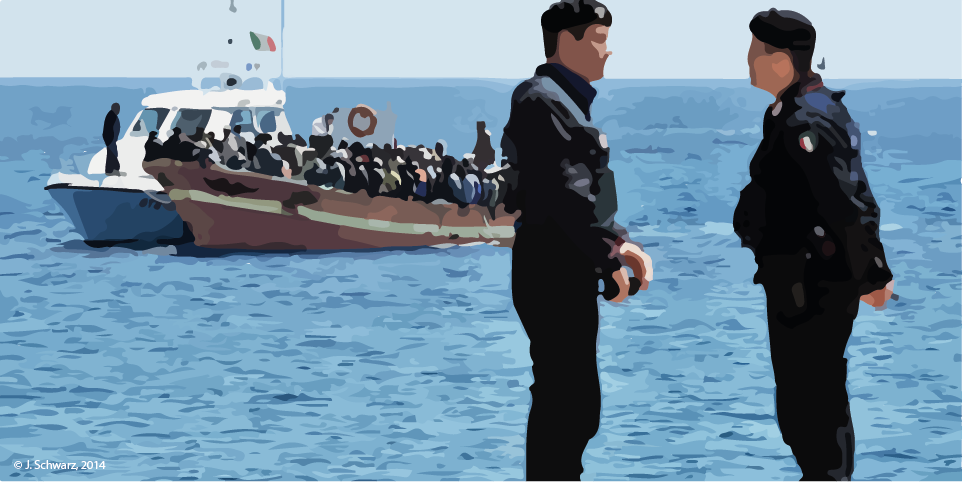Il/legalizing Mobility
Project by Inga Schwarz (Postdoc)
Il/legalizing Mobility - Legal Categorizations of Unauthorized Migrants in Europe
 Universal Declaration of Human Rights, Article 13
Universal Declaration of Human Rights, Article 13
(1) Everyone has the right to freedom of movement and residence within the borders of each state.
(2) Everyone has the right to leave any country, including his own, and to return to his country.
Freedom of movement as grounded in the Universal Declaration of Human Rights is highly restricted for the majority of the global population and bound to national and international legal restrictions. Whereas the Universal Declaration of Human Rights entitles all human beings a right to leave their country, a right of entry into other states doesn’t exist per se. Illegal entry into the European Union as well as an expiration or denial of a residence permit leads to an illegalized residence of immigrants in Europe. Unauthorized migration requires extensive mobility practices, including reference points within countries of origin, transit countries and potential recipient countries.
The present research project concentrates on these hypermobile practices of unauthorized migrants in Europe and their dependency on legal categorizations of migration. The different international and national legal spaces, as well as the differing normative orders of social networks that migrants pass through, will be taken into consideration. The leading questions of the project are the following:
- How are categories of legal and illegal mobility constructed socio-culturally and coped with in networks of unauthorized migrants in Europe?
- How are social actors choosing and combining different legal resources of mobility?
- What does im/mobility mean to unauthorized migrants in Europe?
- How are legal categorizations influencing mobility practices?
- Is there an “alternative network capital” in the case of a missing legal basis of mobility?
Using mobile ethnography by means of participating in mobile practices of unauthorized migrants in Europe, the project aims to shed light on transnational mobility practices and social networks in the different locations migrants refer to. The often-cited fact of nearly impossible access to migrant communities wanting to remain hidden will be solved by personal networks stemming from voluntary work in refugee organizations.
In addition to filling the gap of empirical work on unauthorized migration, the project aims to intersect mobility studies and legal anthropology by asking about the influence of formal and informal legal categorizations of mobility on mobile practice.
